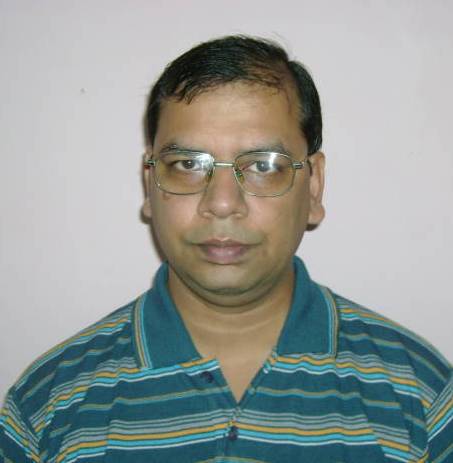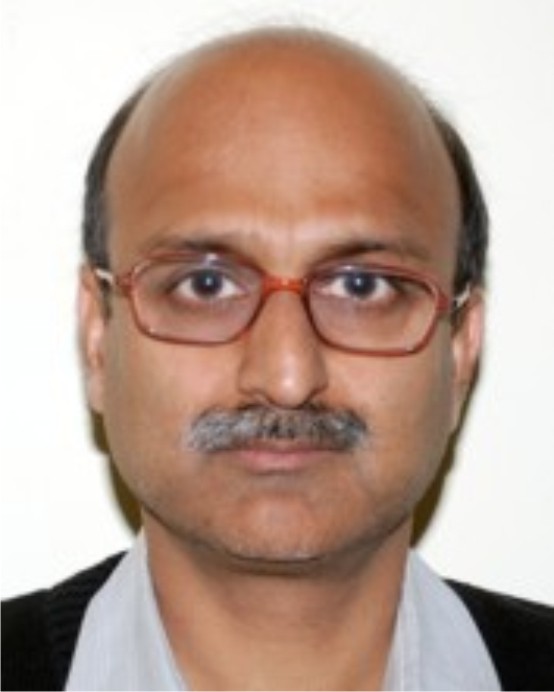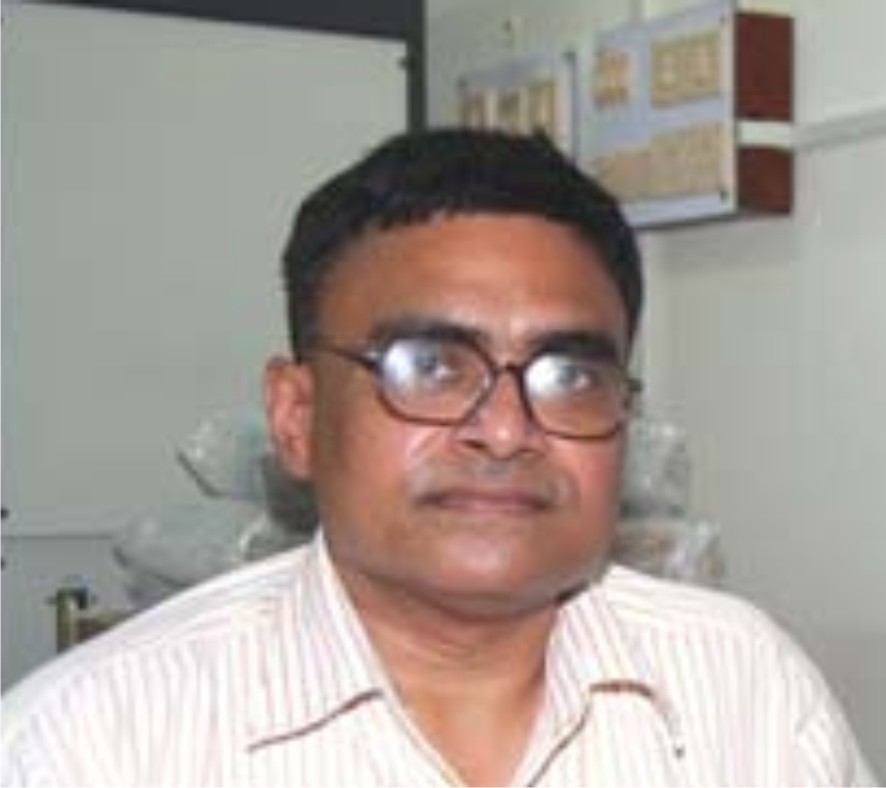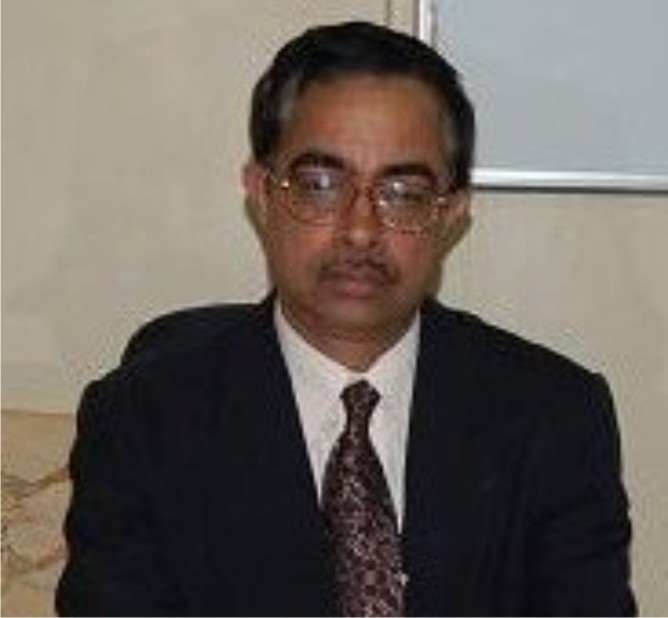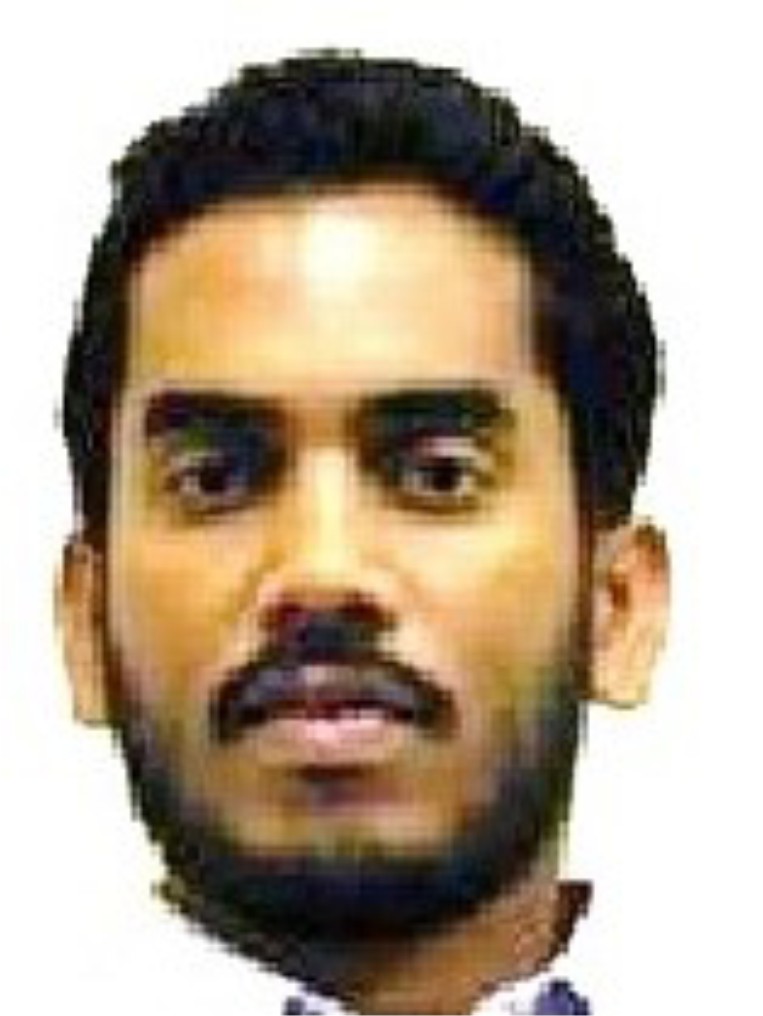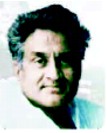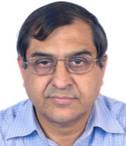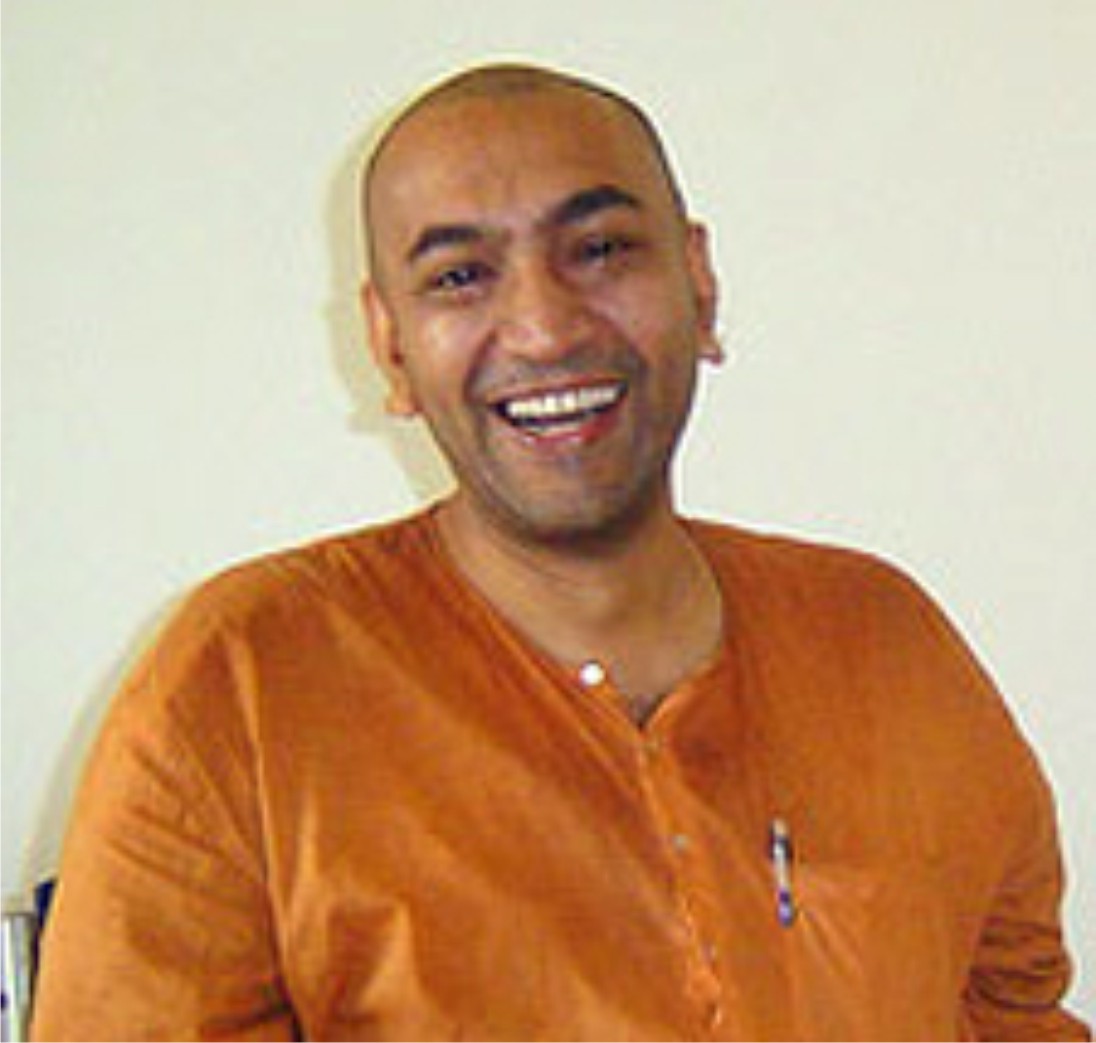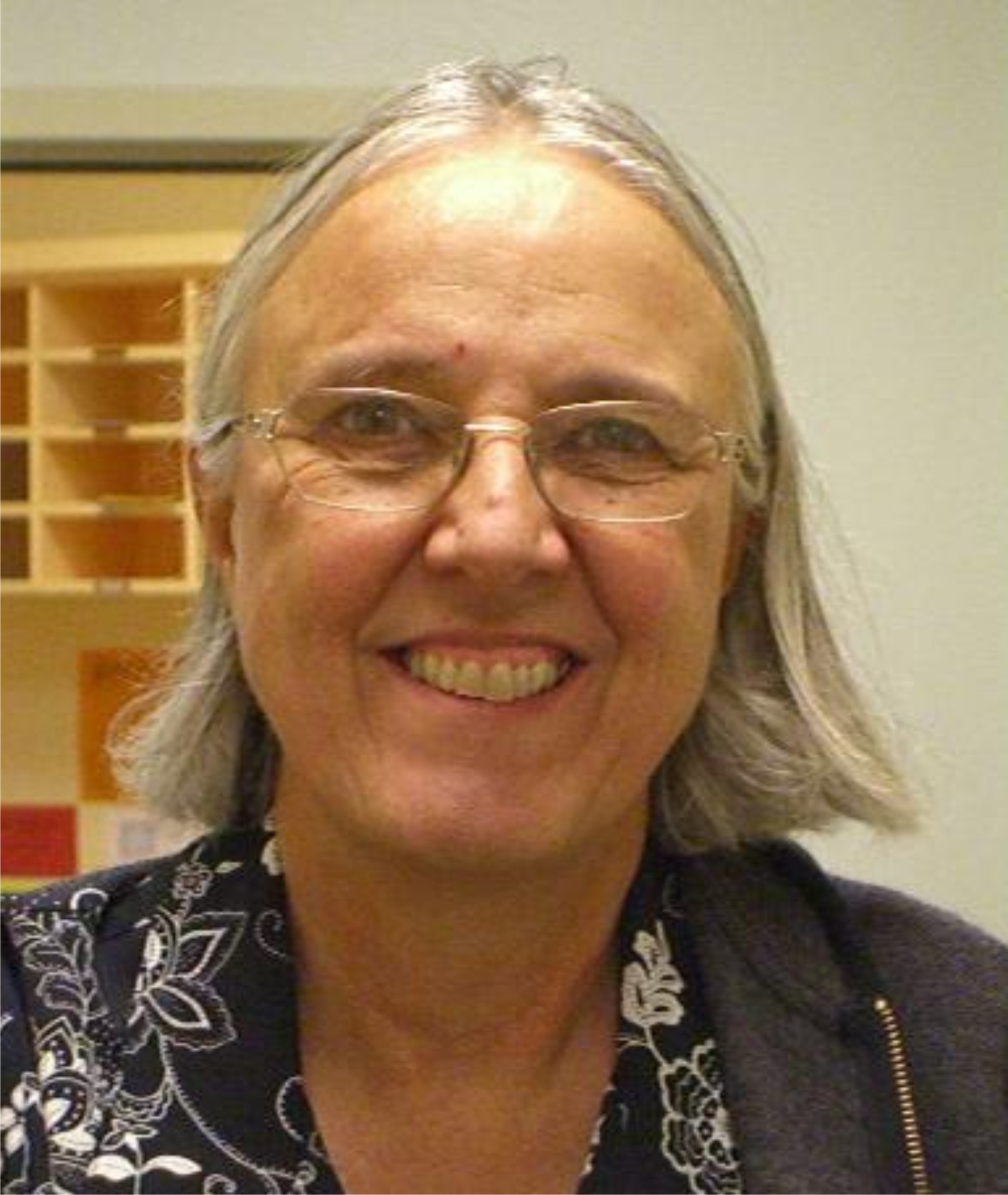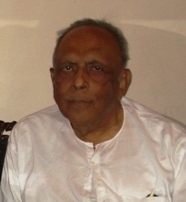
Infosys Prize 2011 |
Faculty News |
| New Dean of Academic Affairs |
| Faculty Honours and Awards |
Distinguished Lectures |
Prof. C. V. Seshadri Memorial Distinguished Lecture |
Institute Lectures |
Mr. Prabuddha Ganguli |
Workshops and Conferences |
| BRiP 2011 |
| Gurukul 2011 |
| Celebrating Chemistry @ IITK |
| Blubof2011 |
Homecoming |
| Batch-of-61 |
| Class-of-87 |
| Class-of-72 |
Student News |
| Inter IIT Sports Meet 2011 |
Obituary |
| Prof. Rajat Ray |
Infosys
Prize 2011 to Prof. Kalyanmoy Deb |
 |
Prof. Kalyanmoy Deb, Gurmukh and Veena Mehta Endowed Chair Professor of Mechanical Engineering, IIT Kanpur, and the Director of the Kanpur Genetic Algorithms Laboratory, Kanpur has won the Infosys Prize 2011 in the category of Engineering and Computer Science. On 16th November 2011, the Infosys Science Foundation announced the winners of the Infosys Prize 2011, recognizing outstanding contributions to scientific research in five different categories: Engineering and Computer Science, Life Sciences, Mathematical Sciences, Physical Sciences and Social Sciences. Professor Kalyanmoy Deb has made fundamental contributions to the emerging field of Evolutionary Multi-objective Optimization (EMO) where his work has led to significant advances in the areas of non-linear constraints, decision uncertainty, programming and numerical methods, computational efficiency of large-scale problems and optimization algorithms. He has demonstrated how fundamental ideas of optimization and computing principles can be combined to devise efficient algorithms that are fast, accurate and scalable. His recent studies on handling challenging practical multi-criteria optimization problems make his research pragmatic and applicable to multiple disciplines. Prof. Deb's research addresses both fundamental and applied aspects of optimization, developed synergistic and computationally efficient algorithms, and demonstrates their usefulness in industries such as logistics and refineries. The other recipients were Prof. Sriram Ramaswamy, Indian Institute of Science, Bangalore in Physical Sciences; Dr. Imran Siddiqi, CSIR - Centre for Cellular and Molecular Biology (CCMB), Hyderabad in Life Sciences; Prof. Raghuram G. Rajan, University of Chicago's Booth School of Business, Chicago, USA in Social Sciences-Economics; Prof. Kannan Soundararajan, Stanford University, Palo Alto, USA in Mathematical Sciences and Dr. Pratap Bhanu Mehta, Centre for Policy Research, New Delhi in Social Sciences - Political Science and International Relations. The award ceremony for the Infosys Prize 2011 was held on 9th January 2012 in Bangalore, where Dr. A. P. J. Abdul Kalam felicitated the winners with a 22-karat gold medallion, a citation certificate and prize money of 50 lakh.
IIT Kanpur is proud to have three faculty members and five alumni as Infosys Prize winners.
Homepage of Prof. Deb: http://www.iitk.ac.in/kangal/deb.shtml
Faculty
News |
New Dean of Academic Affairs
|
Prof. Dheeraj Sanghi
is the new Dean of Academic Affairs. His research interests are in
the areas of Computer Networks, Protocols, TCP/IP, IPv6, Network Security
and Telecom Regulation.
For more details about Prof. Sanghi please visit: http://www.cse.iitk.ac.in/users/dheeraj/
|
Prof. Sandeep Sangal is
the new head of the Material Science and Engineering Department. His
research interests are in the areas of Structure-Property Correlations,
Microstructural Characterization, Stereology, Image Processing, Development
of Web-Based Educational Aids.
For more details about Prof. Sangal please visit: http://home.iitk.ac.in/~sangals/
Nishith Vermal |
Prof. Nishith Verma is the new
head of Chemical Engineering Department. His research interests are
in the areas of Adsorption, Environmental pollution control, Synthesis
and application of carbon nanofibers and particles, Mathematical modelling
and simulation, Transport Phenomena.
For more details about Prof. Verma please visit: http://www.iitk.ac.in/che/nv.htm
Parimal K. Bharadwaj |
Prof.
Parimal K. Bharadwaj is the new head of Chemistry Department.
His research interests are in the areas of Supramolecular Chemistry.
For more details about Prof. Bharadwaj please visit: http://www.iitk.ac.in/chm/CHM/facultyinorg.htm
Prof. Manindra Agrawal, Computer Science and Engineering Department, has been awarded the H. K. Firodia award for excellence in Science and Technology, by the H K Firodia foundation.
Prof. Kalyanmoy Deb, Mechanical Engineering Department, has been elected as an IEEE Fellow.
Prof. Kalyanmoy Deb, Department of Mechanical Engineering, has been awarded the National J. C. Bose fellowship by the Department of Science and Technology, New Delhi.
Prof. Kalyanmoy Deb, Department of Mechanical Engineering, has been awarded the V. Cajastur Mamdani Prize for Soft Computing by the European Centre for Soft Computing, Spain.
Prof. Sanjay G. Dhande, Director, has been awarded the degree of Doctor of Science (honoris causa) in recognition of his contributions in the fields of technical education and engineering research and technology by Uttarakhand Technical University, Dehradun.
Dr. Binod Sreenivasan, Mechanical Engineering Department, has been awarded the Swarnajayanti Fellowship by the Department of Science and Technology.
Distinguished Lectures
|
|
Prof. C. V. Seshadri Memorial Distinguished Lecture: Dr.
Rajdip Bandyopadhyaya, Department of Chemical Engineering, IIT Bombay
gave a lecture titled Functional Nanoparticles by the Colloidal Route:
Experiments, Mechanism, Modeling on 16th November, 2011. Prior to his
current assignment at IIT Bombay he was a faculty member at IIT Kanpur.
In his lecture Dr. Bandyopadhyaya said that technological requirements
of advanced materials can be diverse, but principles of self-assembly
and surface chemistry can help us in designing materials with different
geometry and functionality. For example, solid nanoparticles in general
are required to be monodisperse and of controlled morphology. He said
that this has been achieved through confinement of reaction and resulting
particle nucleation and growth within self-assembled reverse micelle cores,
whereby we are able to synthesize and mathematically model nanoparticles.
In contrast, simple switching of the reaction zone from inside to the
external surface of the micelles eventually leads to synthesis of nanoporous
materials. The latter can be further impregnated with different dispersed
constituents (like nanoparticles, enzymes), or functionalized with chemical
moieties. The resulting nanocomposite is tailored for selective access
of a guest species to the dispersed or functionalized component, enhancing
overall performance.
Dr. Bandyopadhyaya did his PhD from the Indian Institute of Science, Bangalore.
His current research is focused on using the principles of colloidal and
interfacial science to link the synthesis, structure, dynamics and properties
of nanomaterials, uncovering the interplay of multiple length and time
scales. He is an elected Member of The National Academy of Sciences, India
(NASI).
About the donor
The corpus of the Professor C. V. Seshadri (CVS) Memorial
Distinguished Lecture in the Department of Chemical Engineering, IITK
has been set up by several students, family members and friends of CVS.
This lecture is to be delivered by a promising young Chemical Engineering
researcher (below 45 years) working in India.
About Prof. C. V. Seshadri
|
|
The late Prof. C. V. Seshadri was a distinguished Chemical Engineer. He
did his Ph.D from Carnegie Mellon University, Pittsburgh, USA. He joined
IIT Kanpur in 1965. He served as the Head the Department and also as the
Dean of Students’ Affairs, IITK. Prof. Seshadri left IITK in 1974
to join Kasturi Paper Food and Chemicals Ltd., Bangalore, where he set
up India’s first fodder yeast plant. In 1976, he joined the Shri
A. M. M. Murugappa Chettiar Research Center in Chennai as its founder
Director, an institute emphasizing appropriate technology, the forte of
CVS. It was here that CVS really blossomed and helped develop several
appropriate technologies, including Spirulina Algae. For his efforts in
this direction, CVS received the prestigious Jamnalal Bajaj award for
S&T for rural development (1981).
|
|
Distinguished Lecture in Chemistry:
Prof. S. S. Krishnamurthy, Emeritus Professor & INSA Honorary Scientist,
Department of Inorganic and Physical Chemistry, IISC, Bangalore gave a
lecture titled Journey into the calixarene LAND with the Torch of Phosphorus
on 18th November, 2011. In his talk Prof. Krishnamurthy said that Calixarenes
constitute an important class of synthetic macrocycles which display remarkable
features such as conformational flexibility, presence of well-defined
cavities, and ability to undergo modifications at both upper and lower
rims. Calixarene chemistry has grown in several directions in recent years.
Particularly striking are the developments in the transition metal chemistry
of phosphorus(III) functionalized calix[4]arenes and the use of these
“phospha-calix[4]arene” ligands in catalysis. In this lecture,
he talked about how two major types of calix[4]arene phosphite ligands
have been synthesized depending on whether phosphorus is attached to one
or two phenolic oxygen atoms at the lower rim of the calix[4]arene framework.
Significant highlights of the work are: (a) synthesis of chiral calixarene
phosphites and unsymmetrically substituted bisphosphites which exhibit
a large through space P...P coupling, (b) design of a new type of “phospha
calixarene” ligand, in which a diphosphazane (P-N-P) unit is appended
to the lower rim of the calixarene framework, (c) synthesis of calix[4]arene
bisphosphite ligands bearing two distal 2,2'-biphenyldioxyphosphinoxy
or 2,2'-binaphthyldioxyphosphinoxy moieties which exist in two pairs of
interconvertible conformers in solution and (d) cyclometalation of palladium
and platinum chloride complexes of sterically encumbered calixarene bisphosphites.
Prof. S. S. Krishnamurthy is a renowned inorganic chemist with significant
contributions to main-group and organometallic chemistry. He has published
over 175 research papers and has mentored over 30 PhD students. He has
worked in the Inorganic and Physical Chemistry Department, Indian Institute
of Science, Bangalore for over four decades. He is currently an Emeritus
Professor at the same Institute. Prof. Krishnamurthy has won many awards
and fellowships. Notable ones include the fellowship of the Indian Academy
of Sciences, Bangalore and the Indian National Science Academy, New Delhi.
About the donor
The Distinguished Lecture series in Chemistry has been made possible mainly from the Department of Chemistry funds and partially from the Sixth National Symposium in Chemistry—Chemical Research Society of India (2004), organized by the Department of Chemistry, IIT Kanpur.
Institute Lectures
|
|
Mr.
Prabuddha Ganguli (MSc-2yrs/CHM/71), CEO, VISION-IPR,
Mumbai, gave a lecture titled Pole-vaulting innovations across Academic
Walls on 31st October, 2011. In his talk Mr. Ganguli said that, for the
sustenance of an innovative culture, academic institutions on the one
hand have to be involved in the continual creation, enrichment and maintenance
of contextual educational programmes and on the other hand, they must
participate in the maximizing of the speedy transformation of knowledge
into tangibles for commercial exploitation. The process of 'knowledge
generation' and transfer demands innovative frameworks to justify 'ownership
of the developed knowledge' and 'benefit sharing' between contributing
partners thereby providing pathways to incubation of minds to markets.
The speaker said that “IPRinternalise®” can be seamlessly
introduced in academic programmes even at the undergraduate level in an
institution of academic excellence such as IIT Kanpur for the creation
of a new breed of human resource equipped with 21st century techniques
of Knowledge Engineering for innovation management and commercialization
for societal progress.
Mr. Ganguli is a leading international expert on IPR and a Consultant
to the World Intellectual Property Organization for IPR capacity building.
After several years in academic research (TIFR, BARC), he worked in industry
(Hindustan Lever) for 2 decades in diverse managerial roles including
R&D, Technology Assessment, and Knowledge Management. He is an honorary
scientific consultant for innovation and IPR matters to the Office of
the Principal Scientific Adviser, Government of India. He is also a member
of the advisory board of the International Intellectual Property Institute
(IIPI), Washington and a member of the International Editorial Board of
“World Patent Information”. He has over 50 publications in
technical fields, over 60 publications in IPR and 5 books. In February
2011 he was awarded "The Chemtech Pharma-Bio World Award 2011 for
outstanding contribution in the field of Intellectual Property".
|
|
Dr. Mahan Maharaj,
(MSc/MTH-5yrs/1992), The School of Mathematical Sciences,
Ramakrishna Mission Vivekananda University, Kolkata gave a lecture titled
What is hyperbolic geometry? on 14th November, 2011. In his talk he gave
an introduction to hyperbolic geometry, including its genesis. He also
talked about high school calculus and co-ordinate geometry.
Dr. Mahan Maharaj (formerly Mahan Mitra) is the recipient of this year's
prestigious Shanti Swarup Bhatnagar award in Mathematical Sciences. Mahan
obtained his PhD from UC Berkeley. He received the Earl C. Anthony Fellowship,
U.C. Berkeley 1992-1993 and the prestigious Alfred P. Sloan Doctoral Dissertation
Fellowship for 1996-1997. His most notable work is the proof of the existence
of Cannon–Thurston maps. This has led to the resolution of the conjecture
that connected limit sets of finitely generated Kleinian groups are locally
connected.
|
|
Dr. Annick Pouquet, Computational and Information Systems
Laboratory, USA gave a lecture titled Waves and turbulence in rotating
flows on 5th December, 2011. In her talk Dr. Pouquet said that in the
presence of waves, such as in the presence of rotation, stratification
or magnetic fields, different regimes for the dynamics of a turbulent
flow can emerge according to the parameter measuring the ratio of the
wave period to the eddy turn-over time. When this ratio is small, it provides
a parameter with which one can close the equations, together with the
resonance condition of waves. However, this theory of weak turbulence
is non uniform in scale and breaks down, leading to other regimes. In
this talk, the speaker first reviewed how one can derive the kinetic equations
for weak turbulence, comparing them with classical two-point closures.
She then moved on to describe the results of large-scale direct numerical
simulations of rotating turbulence up to grids of 30723 points and showed
that helicity, measuring the degree of alignment between velocity and
its curl, the vorticity, plays an essential role, leading to new dynamical
ranges. She also presented evidence for the recovery of isotropy at the
small scales.
Dr. Annick Pouquet obtained her PhD in Physics at the Observatoire de Nice (France) working on the dynamics of magnetohydrodynamics turbulence. She worked for the Centre National de la Recherche Scientifique in Nice before leaving in 2000 to join the National Center for Atmospheric Research in Boulder, Colorado, where she now resides. She has worked on several aspects of turbulence, in two and three dimensions, incompressible or supersonic, with or without magnetic fields, with applications to the solar wind, the interstellar medium and to the problem of generation of magnetic fields. She is presently focusing with her team on rotating flows as they can be encountered in the atmosphere and the oceans. Dr. Pouquet is a fellow of the American Physical Society. She was the first director of the Earth and Sun Science Laboratory at NCAR, and she is the head of the Geophysical Turbulence Group.
Workshops and Conferences
3rd Asian Conference on Coordination Chemistry was held at the India Habitat Centre, New Delhi from 17th – 20th October, 2011. This biennial conference follows the very successful first and second meetings held in Okazaki, Japan (2007) and in Nanjing, China (2009). The conference covered modern advances and new trends in coordination chemistry including electronic structures and bonding of metal complexes, organometallic chemistry, bioinorganic chemistry, supramolecular chemistry and porous materials, rational design of functional materials, nano-sciences of metal complexes, catalysis by metal complexes, surface and solution coordination chemistry and other emerging topics in coordination chemistry.

BRiP 2011, a National Students' Conference on River Basin Planning was held from 4th – 5th November, 2011. This was organized by the consortia of seven IITs. BRiP-2011 invited the participation of students interested in the field of river basin planning and related areas. The conference particularly aimed to encourage the younger generation, especially students from diverse backgrounds such as engineering and technology, medicine, humanities, law and the social sciences to share innovative ideas, and to deliberate, debate and discuss various aspects of river basin planning in order to create next generation human resources. The conference theme included all issues of river basin planning such as environmental quality and pollution, water resources development and management, fluvial geomorphology, ecology and biodiversity, socio-economic-spiritual-cultural aspects and policy-law-governance issues.

|
|
Universal Sustainable Innovative Design For Social Change (USID) Gurukul 2011 was 2nd in the series of Gurukul which was organised in partnership with the Design Programme, IIT Kanpur from 26th November to 11th December, 2011. USID Gurukul is inspired by the traditional "Gurukul", a school concept from the ancient times in India. USID Gurukul 2011 brought together around 60 students (Shishyas) selected from India as well as other countries from the disciplines of Design, Technology, Management and Social Sciences. These Shishyas attended the Gurukul for a period of 2 weeks and studied under the mentorship of eminent academicians, researchers and experienced practitioners (Gurus) from various institutes, organizations and industry domains. The aim of USID Gurukul was to provide a platform for students to collaborate, explore, experience, learn and create design solutions for existing social problems, solutions which could facilitate social and economic development and a better quality of life. Gurukul 2011 focussed on problem statements from the following domains:
- Education
- Health and Care
- Agriculture and Food Shortage
- Transportation and Traffic
- Public policies and its impact on citizens and government

Celebrating Chemistry @ IITK: The Department of Chemistry, Indian Institute of Technology, Kanpur organized a conference 'Celebration of Chemistry@IITK' from 3rd – 5th December, 2011 to commemorate the 'International Year of Chemistry – 2011' (IYC 2011). The conference aimed to bring together chemists working in the frontier areas of chemical research. In addition, this conference showcased the importance of teaching, in the form of Chemical Education, and the significance of chemistry for the well-being of mankind, in the form of Popular Level Lectures. 31 leading Indian scientists from different parts of India and 5 scientists from abroad and all the faculty members, students and staff of the Department of Chemistry, IIT Kanpur attended the event.

Blubof2011: IUTAM Symposium on Bluff Body Flows was held at IIT Kanpur from 12th - 16th December, 2011. 108 delegates participated in the conference, including 38 from outside the country. 15 countries were represented in the symposium. A total of 49 oral presentations of 20 minutes each and 6 invited talks of 40 minutes each, were made. The papers for the oral presentations were selected on the basis of a rigorous review process. A total of 106 submissions were received by the conference. Each paper was reviewed by at least two international experts. Some of the selected papers from the conference will appear in a special issue of the Journal of Fluids and Structures.
Bluff body flows are very important for engineering flows as well as for form building blocks for understanding basic fluid mechanics. In the past few decades very significant progress has been made in the understanding of bluff body flows for stationary as well as vibrating bodies. While experiments at very large Reynolds numbers have been conducted, thetheoretical and computational studies are generally restricted to low/moderate Reynolds numbers. One aim of the meeting was to bring together people working with Experimental and Theoretical/ Computational tools. The topics covered during the conference were the various aspects of bluff body flows: near and far wakes, stability of wakes, shear layer and wake modes, vortex induced vibrations, forced vibrations, vortex induced vibrations at very high Re, control of wakes, drag reduction, numerical techniques, high performance computing and experimental methods.
The symposium provided a perfect ambience for technical discussions. Apart from the technical sessions, there was enough time for the participants to engage in discussions. Poster sessions were organized as well. These provided further opportunities for delegates to carry their discussions forward.
The keynote speakers in this conference are some of the very well known researchers in Bluff Body Flows: Prof. Jaywant H. Arakeri, Department of Mechanical Engineering, Indian Institute of Science, Bangalore; Prof Kerry Hourigan, Director, Division of Biological Engineering, Faculty of Engineering, Monash University, Australia; Prof. Patrick Huerre, Laboratoire d' Hydrodynamique, Ecole Polytechnique, Palaiseau Cedex; France; Prof. George Em Karniadakis, Applied Mathematics, Brown University, USA; Prof. Rajat Mittal, Mechanical Engineering, Whiting School of Engineering, Johns Hopkins University, USA and Prof. CHK Williamson, Willis H. Carrier Professor, Mechanical and Aerospace Engineering, Cornell University, USA.

Homecoming |
Golden Jubilee
Reunion, Batch-of-61
Golden Jubilee Reunion (Batch-of-61): The Golden Jubilee reunion of the 1961 batch was held from 26th – 28th November, 2011. The 40 alumni and their families who attended, immensely enjoyed their visit and captured each other in cameras to make the memories live longer. The batch of 1961 was the second batch of IIT Kanpur after its establishment. A photo album of the 1961 batch Then and Now was released on the second day of the reunion and drew wide appreciation as it had photographs of the batch as freshers and their recent pictures after fifty years . On the third day of the three day long reunion programme the alumni interacted with the students who are currently studying at the institute and gave them useful advice.


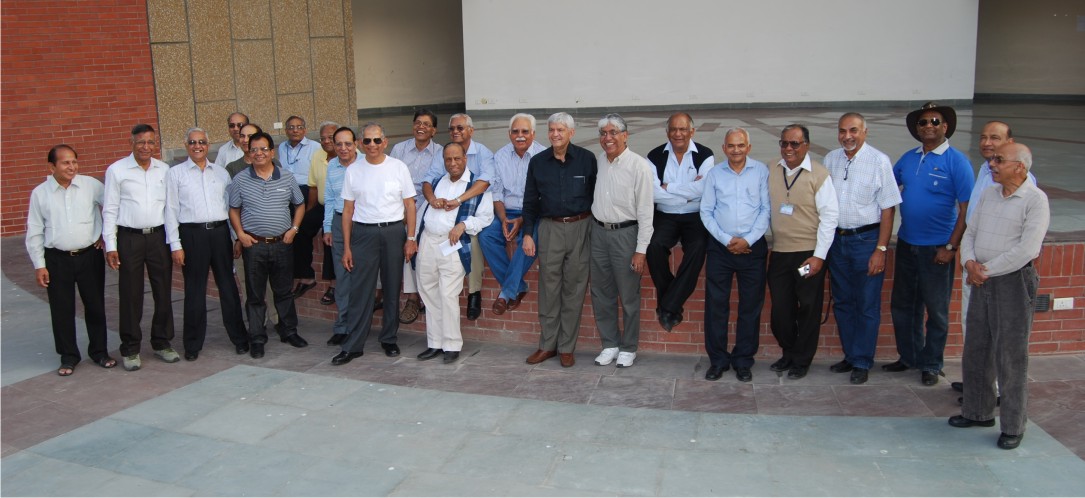
Silver Jubilee Reunion, Class-of-87
The Silver Jubliee Reunion of the Class-of-87 was held from 24th - 26th December , 2011. More than 90 alumni came for the reunion, many of them with their families. These ex-students spent most of the time with their friends amid roars of laughter and cracking of jokes, recalling the time spent at IIT Kanpur. They began their day with yoga and a meditation session followed by jogging and cycling around the campus, enjoying its lush greenery. The alumni visited hostels, canteens, gymkhana, their departments and their laboratories. They interacted with the current students and were pleased to see the many facilities that had come up for them.

40th Year Reunion, Class-of-72
40th year Reunion Class-of-72: The 40th year reunion of the class-of-72 was held from 27th – 30th December 2011. About 75 alumni from India and abroad, many with their families, participated in the reunion. After the inaugural ceremony the alumni were shown a photo exhibition named 'My Other Life' which they all enjoyed. The first day’s activities also included a campus tour and an informal session after dinner. The alumni spent the second day at Bithoor, situated on the banks of the Ganga. They also visited the nearby villages and spoke to the villagers and learnt about their problems. During the reunion the alumni also met the Director and the Deans. The administration of IIT-Kanpur apprised the ex-students about the various developmental projects being undertaken on the campus. On the last day there was a panel discussion which included issues such as the cases of suicide by IIT-K students, and the safety and security of contract workers. During the three days several cultural programmes were also held to entertain the alumni and their families.


Student
News |
Inter II T Students Sports Meet 2011
|
|
The Inter-IIT Sports Meet is held annually during December. The General Championship goes to the IIT which performs best in the Sports Meet and the Aquatics Meet. With the birth of several new IITs, the talent pool has increased dramatically, resulting in a very closely fought General Championship. The 47th Inter IIT Sports Meet was held at IIT Kharagpur which is celebrating its Diamond Jubilee this year. The event was split into two parts with the Aquatics Meet being held from the 2nd to the 5th of October and the Main Meet from the 13th to the 19th of December, 2011. IIT Kanpur fielded a very young contingent with most of the prolific players of previous years having passed out. The contingent showed great resolve and character with some very notable performances in some sports. The Cricket and Badminton teams were able to secure the gold medal. The Water Polo team won silver. The Athletics and Squash teams won bronze. Other teams played well but were unable to secure a podium finish. On the girls' side, we were able to win a silver medal in Volleyball and in the discus throw event, a new meet record was made by IIT Kanpur.

Obituary |
|
|
Prof.
Rajat Ray, Department of Physics passed away on 24th November
2011 in New Delhi after a week long illness. He was suffering from infection
of the lung. Professor Ray was born on 10th August, 1929. He received
his Ph.D. in Experimental Solid State Physics from Purdue University in
the USA. After a tenure as a Research Associate in the National Research
Council, Canada, he joined the Department of Physics at IIT Kanpur as
a faculty member in 1962. In those eventful formative years of IIT Kanpur,
Dr. Ray participated in its growth and was instrumental in setting up
the low temperature Physics Laboratory, of which he was the Head for many
years. His research was in the area of Low temperature magnetic phenomena.
He retired from IIT Kanpur in 1990. He leaves behind his wife Amita Ray,
his only daughter Ranjana and son-in-law Pratap, an IITK alumnus.
The Institute expresses its deepest condolences
to the bereaved family of Prof. Ray and prays for the peace of the departed
soul.
Published by: Office of the Dean,
Resource Planning & Generation, Indian Institute of Technology
Kanpur, Kanpur-208 016, India
Phone: + 91-512-259 7635/ 7542 Fax: +91-512- 259 0353 Email –
drpg@iitk.ac.in, arrpg@iitk.ac.in
